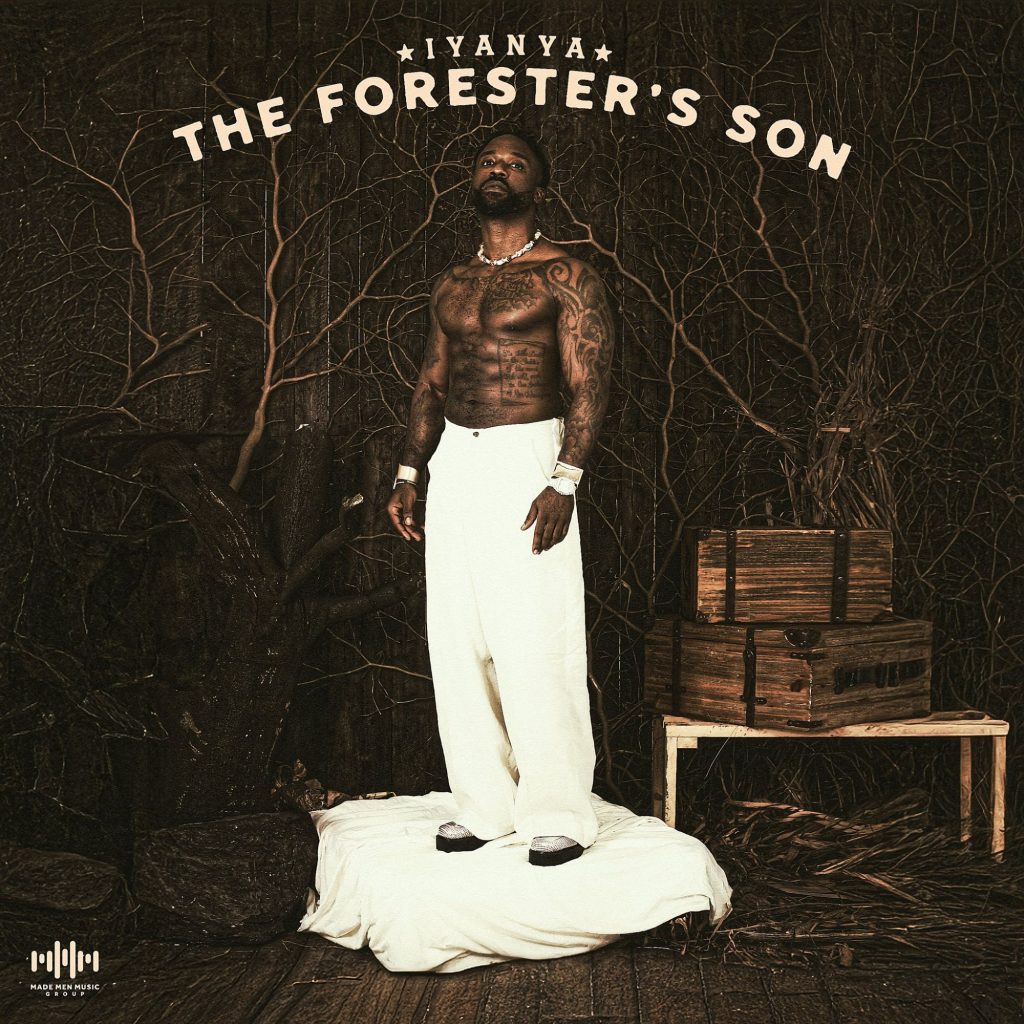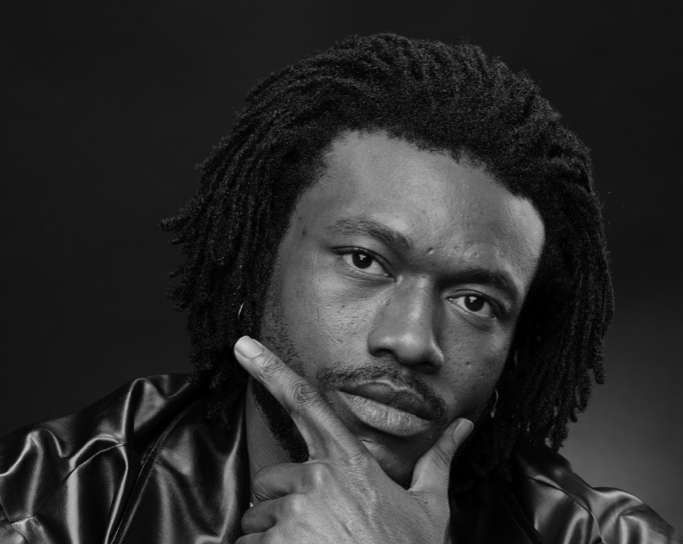It might not be as highlighted or revered as the trifecta of superstars like Burna Boy or Olamide, but Adekunle Gold rightly completed a trifecta with the release of the brilliant Afro-Pop Vol. 1 in 2020, an album that crystallized his transition into a unique pop artist with distinct aesthetics and a resonant sonic identity.

The 2 albums preceding Afro-Pop were also great and what’s impressive about Adekunle’s run of 3 quality albums was the range he showcased on them. His debut album, Gold was a celebration of his roots as a traditional, alternative artist seeking adventure on contemporary sounds through fusion. About 30 was less steeped in the traditional waters and more grounded in urban highlife.
‘Afro-Pop’ like the name implies was a pop album that had lush African production and ingenious fusions with western R&B and Soul. Every single album had character and a strong identity that went a long way in creating an impression on the listener, asides just being great music. Ever since Afro-Pop however, it would seem AG Baby has struggled with unearthing another unique sonic formular or identity to herald a new album.
His fourth LP, Catch Me If You Can was by no means a bad album. It had good songwriting, competent production and was even cohesive to a good extent but unlike his previous project, it lacked a unique sonic identity. Something to burn it in the memory of listeners and make them want to go back for more.
The album was supposed to mark a new era of Bad Boy Deks but the music was so forgettable that many people missed that. You could almost say the same for Tequila Ever After. Although the roll out of this album was handled way better and it’s made the Tio Tequila persona stick, it’s almost like Adekunle Gold believes that creating a new persona for every album equates to creating a unique sonic identity for it.

Indeed embodying new characters in an album go a long way in characterization and conceptualizing a grand narrative. Blaqbonez is an artist that’s fantastic at doing so, but it doesn’t stop at the persona. It needs to go into the music. We need to see new and fresh insights into this character that we haven’t seen before, through the storytelling in the writing and the album also needs something unique sonically to stand out from other projects by the artist to really nail that sentiment home.
Adekunle Gold hardly does that. There is nothing he’s saying on this album as Tio Tequila, that he couldn’t say on previous projects. Take for example, Wrong Person ft. OdumoduBlvck. On the song, he’s beating his chest and affirming the fact that he isn’t terrified of challenges.
However, on Afro-Pop in a song called, Okay, he executed better on that same sentiment with even better writing and lush production. Hence it creates this paradox where there is nothing new or interesting about this character. It also doesn’t help that on the album opener, a song with rhythmic guitar riffs and choral segments—Tio Tequila is Chasing Peace Of Mind which is almost contradictory to the aforementioned topic earlier on.
Yes, humans are multifaceted and you can strive for peace of mind and at the same time scowl at the face of terror, but when building a character on a project, you can’t afford to be slightly contradictory because you need to convey one prominent trait of the character and let it be their anchor or else, they’re just any other person.

The production on the album is also a bit too minimalistic for even Adekunle Gold’s standards. What made his initial trifecta of albums stand out was their unique sonic identity defined by their mostly maximalist and elevating production. The production on Sabina, off Afro-Pop tastes like honeyed wine, left to marinate for years in its richly layered texture of soulful, western chords and pulsating visceral African drums. The entire album had that quality of sounding western, yet African in the roots of it sonics.
Soro, Tio Baby and Do You Mind are songs with painfully minimalistic, almost-mediocre production that could have been elevated to great quality if they had more grand production. Indeed excess isn’t the answer to quality, but on an album you need to create a sonic atmosphere and that’s not feasible with basic production. It’s such a shame, because a lot of these songs are so well written and have impressive flow and delivery schemes from Adekunle but they won’t hit the mark because their sonics aren’t just that appealing. Great songwriting only resonates when every other thing is great.
Adekunle’s effort on Sisi Ganja is commendable as he tries something a bit out-of-the-box with the Afro-Swing template and although he doesn’t sound as comfortable as some other Afrobeats artists who tread the terrain more frequently, the song is easily a gem because it leaves an impression in comparison with the other songs. Make It Easy ft. Coco Jones, Look What You Made Me Do ft. Simi and Come Back To Me ft. Khalid are songs with great potential of being deep RnB, soulful cuts on the album but they all fall flat because the lack of emotion on them.
Whilst Look What You Made Me Do is a bit more effective than the other duo, when placed alongside soulful RnB deep cuts from other albums like Joeboy’s ‘Check My Phone, Lojay’s Ova or Nonso Amadi’s Shivers, you understand why it’s a mediocre record. The artists don’t convey the longing or intimate desire that’s reminiscent of the topic being addressed and so it’s hard for you the listener to believe what they’re saying.
It’s no mystery that when AG returns to his traditional roots—a soundscape where he’s been impressionable in the past—he creates another rare memorable moment with Kere. It’s an highlife record with the typical celebratory sentiment that the brand of music is known for. On the other hand, Not My Problem, Falling Up and To My Own are so sonically boring, it’s a wonder how they made the final cut out of 60 songs, like the singer claims. Album closer, All My Life is a decent offering but the chances of you making it to that point after an endless wave of bland production and forgettable vocal performances is very low.
For an Adekunle Gold album and for his standards, this is not a great album. As a music project though, it is just okay music that simply doesn’t do enough for you to make you come back. It is nowhere near being horrible. The writing remains tight and consistent all through and the music, although tasteless most times is properly mixed and mastered. It just needs more sonic personality, which is ironic because no one creates more personas these days than Adekunle Gold.
Final Verdict:
Sonic Cohesion: 1.2/2
Unharried Transitions: 1.2/2
Expansive Production: 1/2
Songwriting: 1.5/2
Optimal Track Sequencing: 1.1/2
Total: 6.0/10
–This review is written by T.J. Martins, an ‘Album Talks writer.






